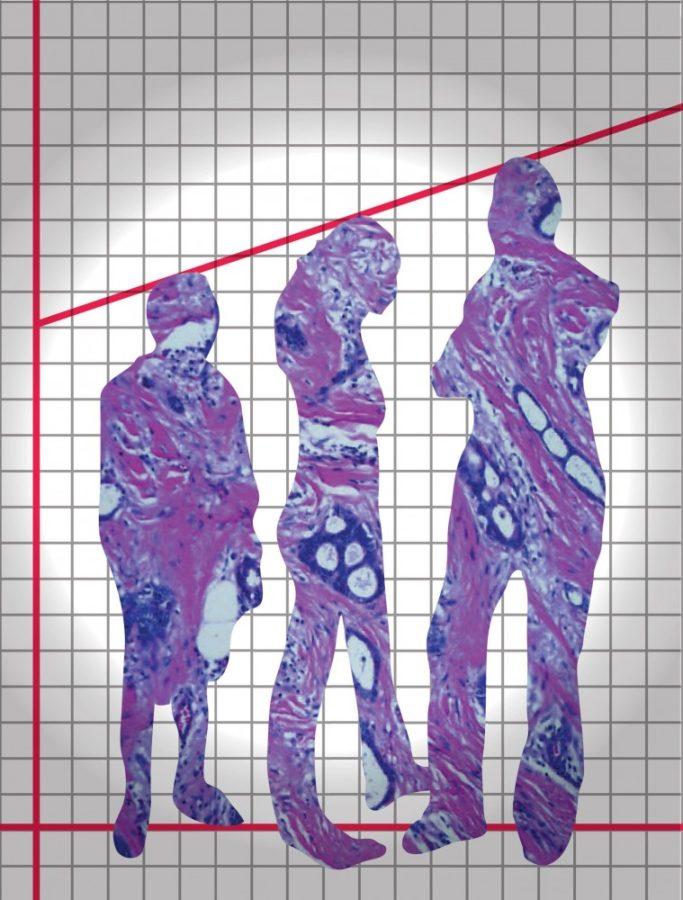Tall women could be at a heightened risk for cancer, according to a study conducted by researchers in the United Kingdom.
This does not necessarily mean that height causes cancer, but it may be a marker of it.
More than 1 million women with an average age of 56 participated in the study from 1996 to 2001. Women with a history of cancer, other than non-melanoma skin cancer, were excluded. During the course of the follow-up, eight to 10 years after the study ended, more than 97,000 women developed some form of cancer including breast, rectum and kidney cancer, said Zhao Chen, professor and division director for the Division of Epidemiology and Biostatistics in the College of Public Health.
Besides confirming what previous research has shown regarding the relationship between height and cancer in women, the study also took aim at other elements as well. However, according to a report of study, published in the Lancet, a medical journal, it is still “”not clear to what extent height-associated risks vary by cancer site, or how other factors, such as smoking and socioeconomic status, affect these associations.””
Starting with 5-foot-1 participants, a person’s chance of developing cancer spiked 16 percent with every four-inch increase in height. A possible explanation is that taller women have more room for cancerous cells to develop within them, she said.
Based on analysis of previous studies, Chen said she would expect the same results if a similar exercise was executed in Tucson. She added that she hopes the study shines a spotlight on the link between height and cancer in women and that more women get screened for cancer after hearing about it.
Litzy Galarza, a sophomore studying pre-journalism and political science, said that although she is only 5 feet tall, the study is still relevant to her.
“”Just because it doesn’t apply to me personally, doesn’t mean I don’t want to know about it,”” she said. “”The more you know the better off you are.””
Galarza added that she does not visit her doctor often, but hearing about this study would motivate her to schedule an appointment with her physician to find out more about cancer screenings. “”It definitely doesn’t hurt,”” she said. “”It might even save your life.””
But not everyone on campus plans to take such action.
“”That sucks for tall women,”” said Abdula Al-dabbagh, a sophomore studying physics and chemistry. “”This is only relevant if I get a tall wife.””
According to estimates on the American Cancer Society’s website, 774,370 women in the United States will be diagnosed with cancer in 2011 and 271,520 of them will die.
Looking for cancer markers allows researchers to identify groups with higher risks of cancer, points future researchers in the right direction and assists them in building prediction models, Chen said.
Although the study did not gather information on men, Galarza said there are still plenty of reasons for males to be concerned.
“”They (men) have women they care about,”” she said. “”Not caring at all about this study is really narrow-minded. Men should definitely be concerned about it because there’s somebody in their life that’ll probably be affected by it.””
The correlation may not be as strong as it is in women, but men do indeed demonstrate a similar link between height and cancer as well, Chen said.
“”Um … OK,”” Al-dabbagh said. “”That’s another thing that’s more likely to kill me, what’s new?””









